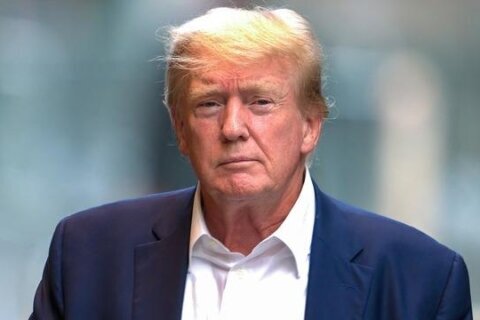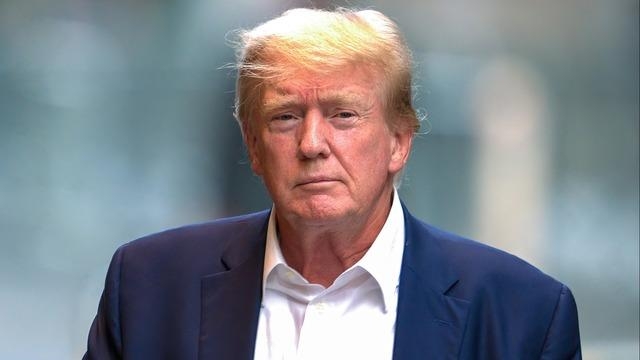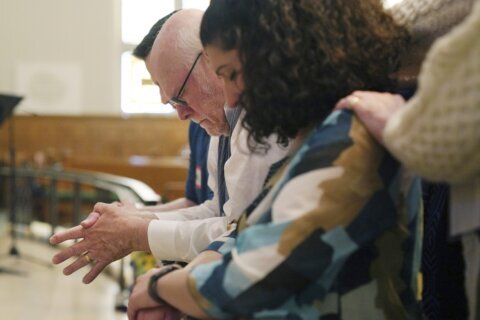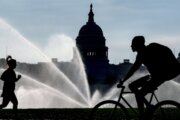
▶ Watch Video: What is the 14th Amendment and could it keep Trump from office?
Washington — Special counsel Jack Smith and his team of prosecutors accused lawyers for former President Donald Trump of making “distorted and exaggerated” claims about their access to classified information as part of their bid to delay the scheduled May 2024 trial in the federal case involving the former president’s handling of sensitive government records after leaving office.
In a new filing submitted Monday, the special counsel urged U.S. District Judge Aileen Cannon, who is overseeing the case brought in South Florida, to deny Trump’s request to delay the trial until after the November 2024 presidential election, arguing his lawyers failed to provide a “credible justification” for doing so.
“Their unfounded claims of Government noncompliance with discovery obligations do not support their request,” federal prosecutors working with Smith wrote. “Their claims about their inability to review classified information are distorted and exaggerated.”
Justice Department lawyers said the “vast majority” of classified material collected during the course of the government’s investigation is available to Trump and his two co-defendants, aide Walt Nauta and Mar-a-Lago property manager Carlos De Oliveira. Smith and his team also argued that the defense’s claims about the unclassified information collected during the probe are “inaccurate.”
“The defendants have repeatedly distorted the comprehensive, organized, and timely unclassified discovery that the Government has produced, in service of an attack on the promptness and thoroughness of the productions and an allegation that the Government is in ‘ongoing non-compliance,'” prosecutors wrote. “The facts prove otherwise.”
Trump’s lawyers asked Cannon last week to delay the trial, currently set to begin May 20, until after the Nov. 5, 2024, election, citing the status of discovery, a lack of necessary secure facilities, and litigation under the Classified Information Procedures Act, which governs how classified information can be being used in the case.
Trump is currently the frontrunner for the Republican presidential nomination. He has pleaded not guilty to 40 charges stemming from his alleged mishandling of sensitive records recovered from his South Florida resort, Mar-a-Lago, after leaving office in January 2021.
In their filing opposing Trump’s request, Justice Department lawyers noted that they have turned over more than 1.1 million pages of unclassified documents and all surveillance footage from Mar-a-Lago obtained before May. The latest batch of information was turned over Friday, the special counsel said. With that production, prosecutors said they had provided Trump’s lawyers with “all unclassified discovery of which it is aware,” aside from certain agents’ emails and text messages.
“The Government’s production of unclassified discovery has been prompt, comprehensive, thorough, and organized,” the special counsel’s office argued. “The defense has complete access to it today, more than seven months before trial.”
Federal prosecutors also rebutted claims from Trump’s lawyers about their access to classified material collected during the investigation, calling them “inaccurate” and “misleading.” While acknowledging that Trump is entitled to classified discovery in order to challenge the Justice Department’s allegation that the documents retained at Mar-a-Lago contained national defense information, Smith argued the “great majority of the allegations” turn on unclassified evidence.
“That the classified materials at issue in this case were taken from the White House and retained at Mar-a-Lago is not in dispute; what is in dispute is how that occurred, why it occurred, what Trump knew, and what Trump intended in retaining them — all issues that the Government will prove at trial primarily with unclassified evidence,” prosecutors wrote.
In arguing for a change to the current schedule leading up to the trial, Trump’s lawyers told Cannon last week that it is “unworkable” in part because secure facilities where they can handle classified information have not yet been established. One member of the defense team, Chris Kise, has also not yet been fully cleared to review certain classified materials, the defense attorneys argued.
But prosecutors wrote that Kise received an interim security clearance in July and has been authorized to view roughly 2,100 pages of classified discovery since September 13, when the material was turned over. That information includes 16 of the 32 documents giving rise to the charges of unlawful retention of national defense information that Trump is facing, Smith’s team said.
Justice Department lawyers wrote that aside from Kise, four lawyers and one legal analyst working on the case for Trump have received final security clearances needed to review all 32 documents that led to charges.
Though prosecutors said they have provided all classified discovery as of Friday, they noted that a “small collection” of documents recovered from Mar-a-Lago are “so sensitive that they require special measures … including enhanced security protocols for their transport, review, discussion, and storage.”
The special counsel said it made a facility in Washington, D.C, available to Trump and his lawyers where they can review all evidence in the case, including the so-called special measures documents, and secure facilities in South Florida where the defense team can review and discuss all classified information in the case, including the highly sensitive documents, will be available by the end of the week.
In their filing, prosecutors also pushed back on a claim by Trump’s lawyers that they lack access to an approved computer to prepare classified discovery requests and other filings, calling it “misleading.” They argued that aside from the small subset of highly sensitive records, the defense team has had access to a classified laptop to address the remaining classified material.
“The defendants’ allegations regarding clearances and secure facilities vastly overstate the impact on their access to classified discovery and their ability to prepare for trial, and do not justify a continuance,” Smith and lawyers on his team wrote.
Nauta and De Oliveira joined Trump’s request to push back the trial date. Prosecutors charged Nauta with eight counts and De Oliveira with three counts for allegedly engaging in obstructive schemes to block the Justice Department’s investigation. The two pleaded not guilty.








